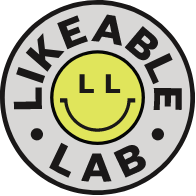Yes, yes, OK, so we know we did a blog about ad:tech Auckland last week but this is different. This blog is just inspired by one of the topics at ad:tech.
(Definitely, completely different.)
ad:tech concluded with a BIG debate between industry experts Tom Goodwin and Rosie Yakob. Tom was arguing that “despite the rise of digital, NOTHING has changed in the landscape of advertising”.
Yep.
Seems like a big statement, right? We mean, social media has changed EVERYTHING about advertising. Surely.
Rosie Yakob was debating the counter argument that, in fact, the proliferation of digitisation had indeed changed EVERYTHING.
Although there was some middle ground on which they both agreed – for example that, despite popular opinion, the attention spans of humans are NOT shortening – their points (and their delivery styles) were wildly different.
Rosie’s key argument was that, because of social media, things can escalate at a speed that simply wouldn’t have been possible before the existence of the internet.
Or that because of the mass media available to consumers at the touch of a button, it’s easier for the audience to call bullsh*t on things they know are simply not true. Cough #fakenews cough.
Here Rosie used the example of Nike X Serena Williams “call me crazy” video which aims to inspire women in sport. When you watch it, it is incredibly inspiring. But when you contextualise it with the myriad of articles, posts, and breaking news about Nike’s poor record for employing women in director roles, or its harsh and archaic treatment of young girls in its high-performance training centre, the audience knows this simply isn’t true.
It feels empty and totally unauthentic. And so, Rosie argued, having access to this information is what makes advertising today so different from what it was 20 years ago.
On the flip side Tom Goodwin argued that despite digital, nothing about advertising has really changed. Really.
What initially sounded like an impossible task soon became inherently persuasive. Using a series of straightforward examples, Tom demonstrated that the fundamentals of advertising have not changed.
Comparing contemporary ads from today, that we would “naively” label as “revolutionary”, are, quite simply, no different to ads from the past. They’re just coated in new shiny wrappers.
Still not convinced?
Take the first TV ad ever made.
Nine seconds long. To the point. Punchy. Sure, it lacked a little creativity, but ultimately its message is no different to that of an ad today.
A 2019 John Deere ad compared to one from 50 years was scarily similar. The key messages, sentiment and purpose were the same. It’s just the new shiny layout and tone of voice that differ.
But what about old school shopping catalogues that we wouldn’t dream of using today?
Tom argued online shopping, e-commerce and digital banner ads are no different.
How about milk floats coated in advertising posters? Errr, Uber Eats.
For every example of old-school advertising, Tom had a modern day replica he couldn’t wait to show off.
When it came to a vote, the audience sided with Tom. Agreeing that, fundamentally, advertising is the act of trying to convince someone that your brand or product or service is right for them. And THAT has never changed.
As a social media agency we’re totally on the fence. Without the rise in digital, an agency like ours wouldn’t exist. It’s true that the key purpose of advertising has, and always will, stay the same, but with digital now making everything so readily available, the landscape and the means by which we advertise has changed – incredibly.
Social media allows brands to relate to their audience in a much more personal way. Take Twitter, where community managers can have a lot of fun chatting back and forth with consumers. Previously, this sort of banter was impossible.
Or topical reactive posts that are literally only relevant for a day. It would be pointless booking media space for a 1-day ad, but social media is affordable and you can create, upload and promote content in LESS than an hour. Try telling that to the advertisers of the Mad Men era.
We can’t help with your next milk float ad, but we definitely can help with anything in the digital department. Drop us a cheeky inbox hello@likeablelab.com.

